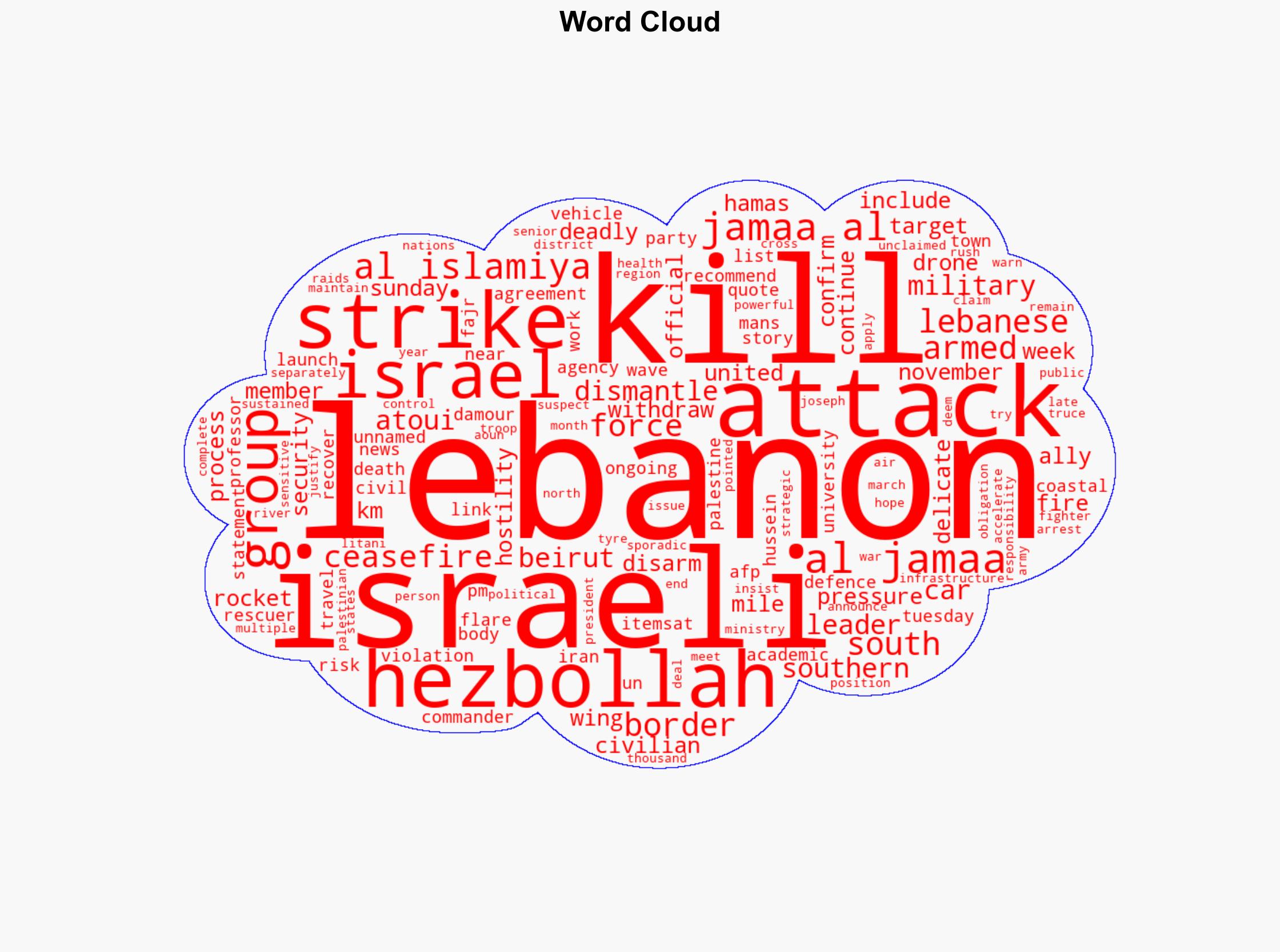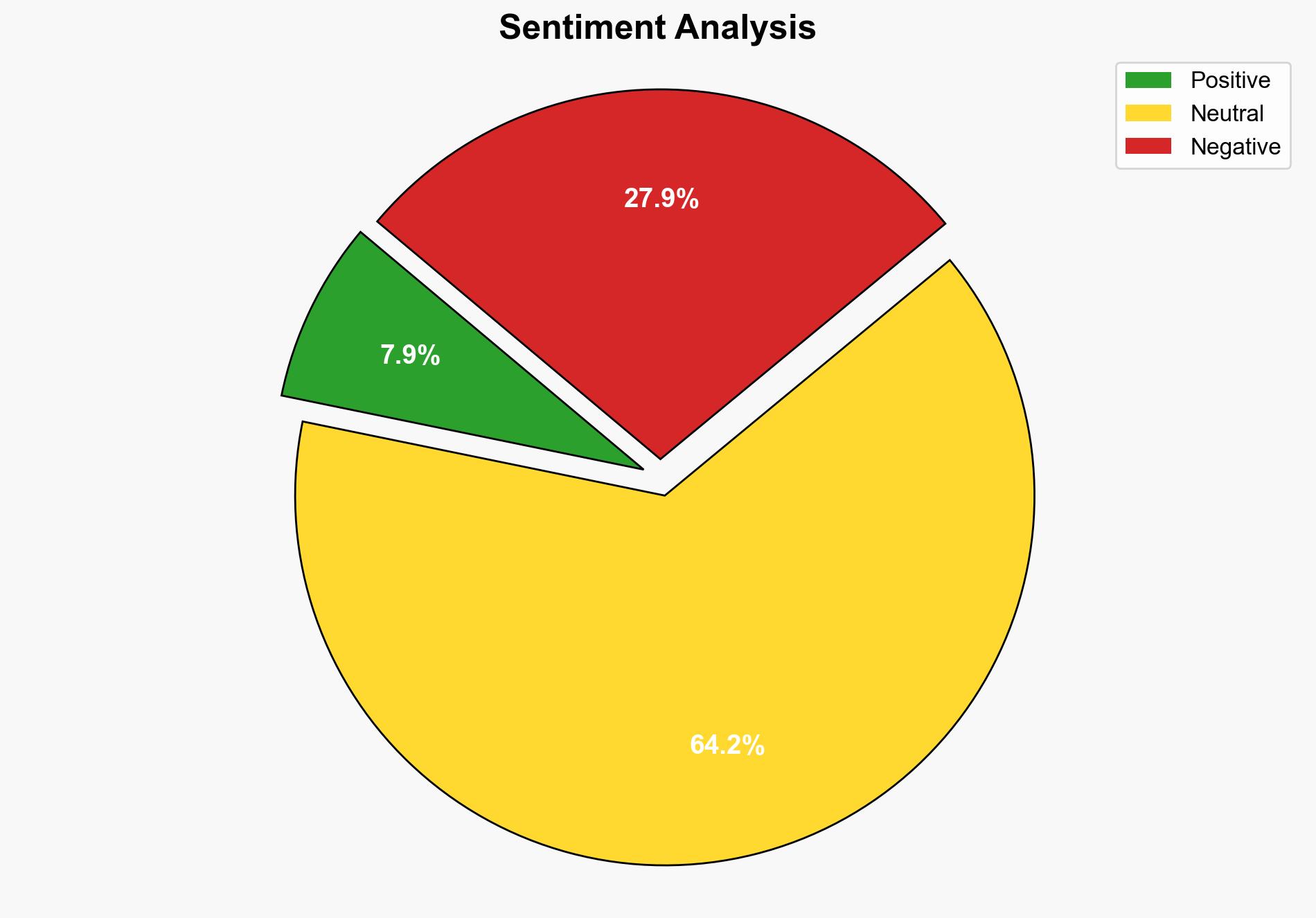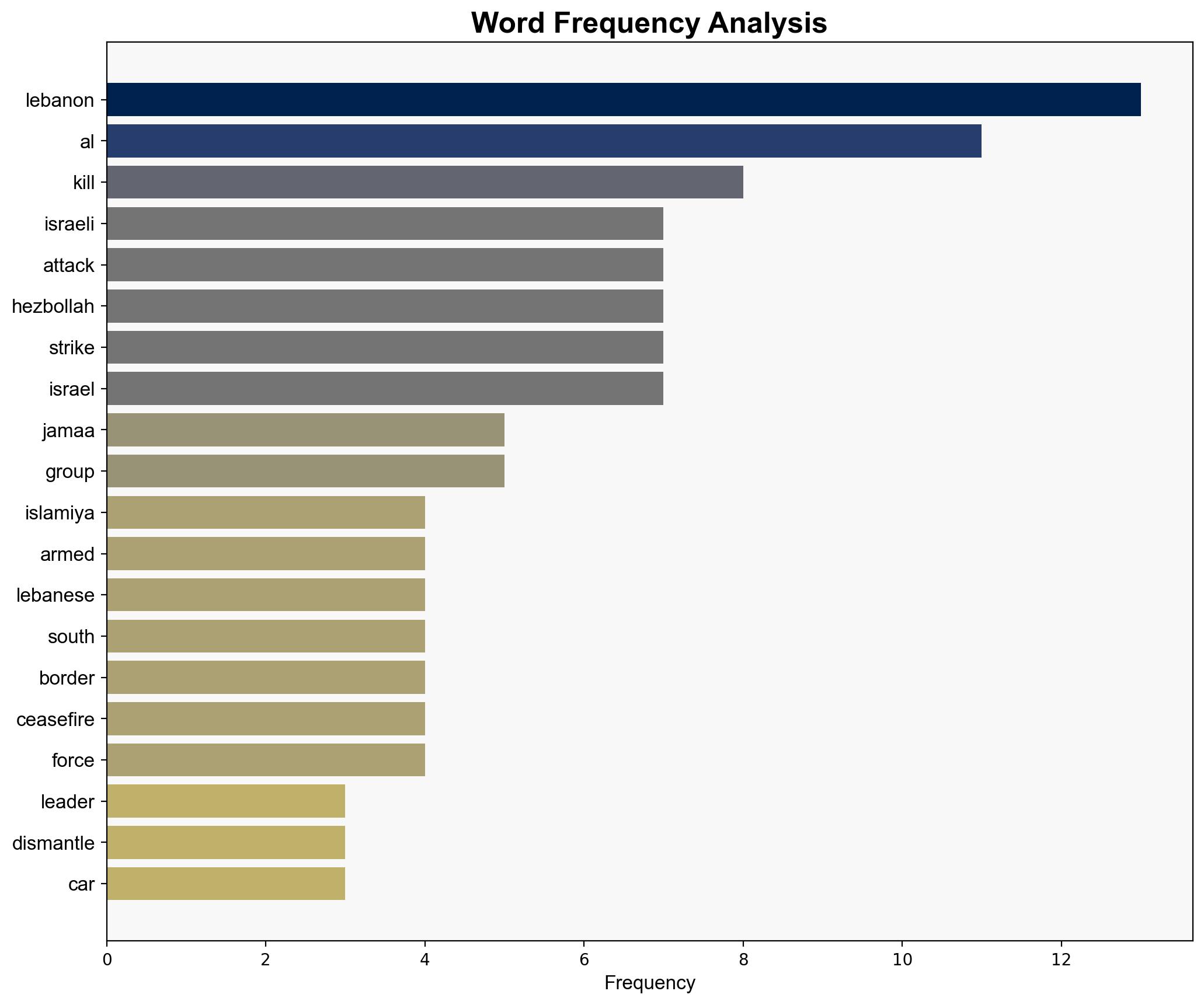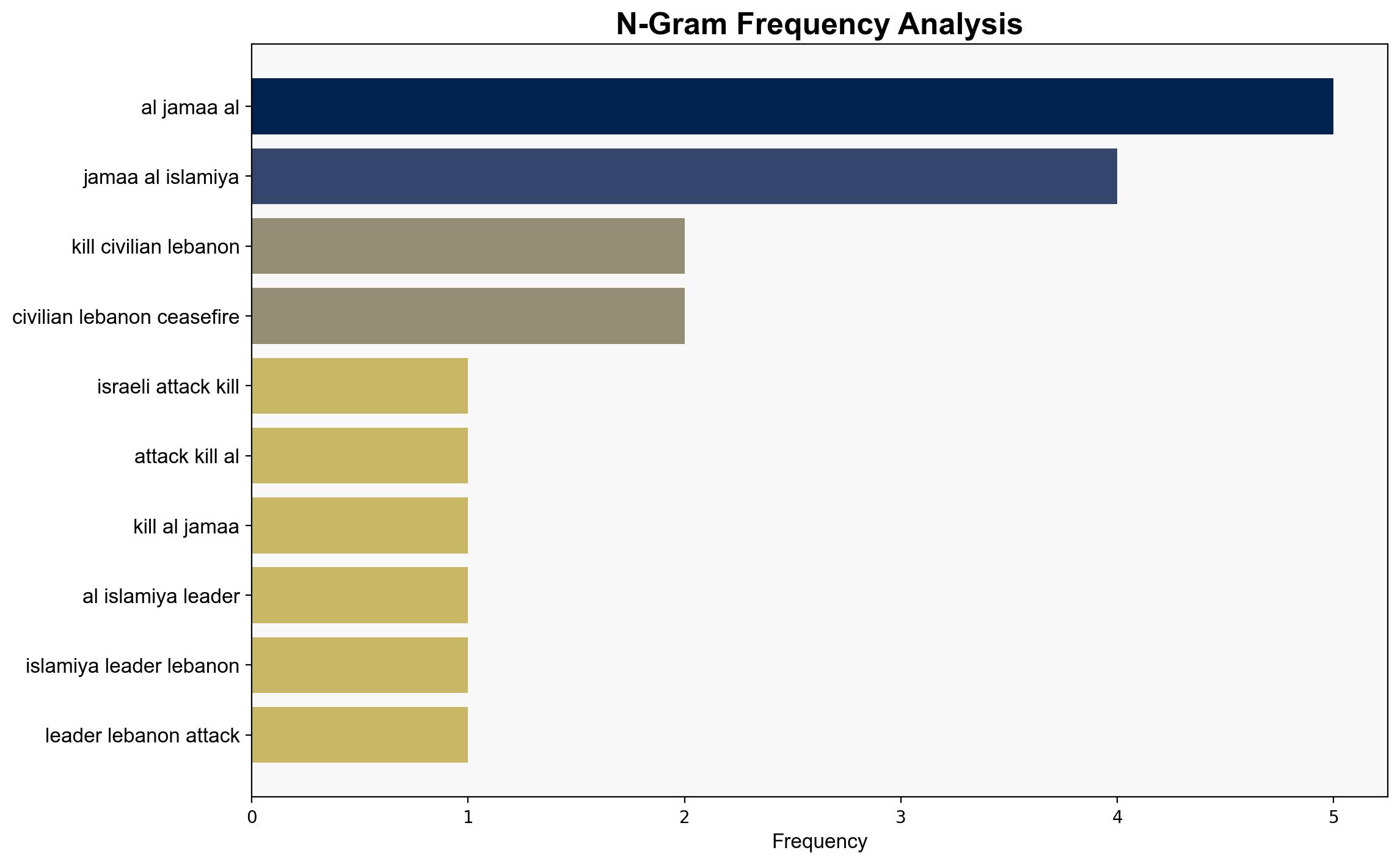Israeli attack kills al-Jamaa al-Islamiya leader in Lebanon – Al Jazeera English
Published on: 2025-04-22
Intelligence Report: Israeli attack kills al-Jamaa al-Islamiya leader in Lebanon – Al Jazeera English
1. BLUF (Bottom Line Up Front)
The recent Israeli drone strike in Lebanon resulted in the death of Hussein Atoui, a leader of al-Jamaa al-Islamiya’s armed wing. This incident heightens tensions between Israel and Lebanon, particularly with Hezbollah, a key ally of al-Jamaa al-Islamiya. The attack underscores ongoing regional instability and the potential for increased hostilities. It is crucial for stakeholders to monitor developments closely and prepare for possible escalations.
2. Detailed Analysis
The following structured analytic techniques have been applied to ensure methodological consistency:
General Analysis
The Israeli strike targeted a vehicle in southern Beirut, killing Hussein Atoui. This action is part of a broader pattern of Israeli operations aimed at countering threats from groups allied with Hezbollah. The attack follows a series of cross-border hostilities and violations of the ceasefire agreement. The Lebanese government faces internal and external pressure to dismantle armed groups, complicating its political landscape. The incident may provoke retaliatory actions from Hezbollah or allied groups, risking further destabilization.
3. Implications and Strategic Risks
The killing of a key figure in al-Jamaa al-Islamiya could lead to retaliatory attacks against Israeli interests, both within and outside Lebanon. The incident may also strain Lebanon’s internal security, as the government balances disarmament pressures with maintaining national stability. The potential for escalation between Israel and Hezbollah remains high, with broader implications for regional security dynamics and international diplomatic efforts.
4. Recommendations and Outlook
- Enhance intelligence-sharing mechanisms among regional allies to preempt potential retaliatory attacks.
- Encourage diplomatic engagement to de-escalate tensions and reinforce existing ceasefire agreements.
- Scenario-based projections:
- Best Case: Successful diplomatic interventions lead to a de-escalation of hostilities.
- Worst Case: Retaliatory attacks trigger a broader conflict involving multiple regional actors.
- Most Likely: Continued low-level skirmishes and sporadic violations of the ceasefire.
5. Key Individuals and Entities
Hussein Atoui
6. Thematic Tags
(‘national security threats, regional focus, counter-terrorism’)




